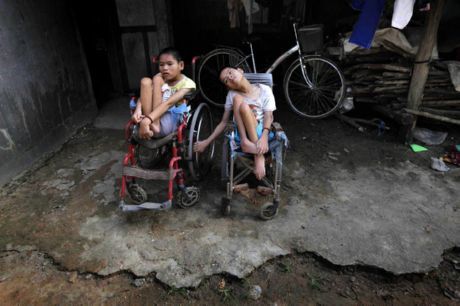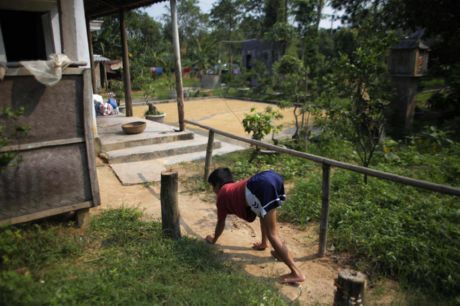Study: Dioxin causes disease in subsequent generations
Last reviewed: 23.04.2024

All iLive content is medically reviewed or fact checked to ensure as much factual accuracy as possible.
We have strict sourcing guidelines and only link to reputable media sites, academic research institutions and, whenever possible, medically peer reviewed studies. Note that the numbers in parentheses ([1], [2], etc.) are clickable links to these studies.
If you feel that any of our content is inaccurate, out-of-date, or otherwise questionable, please select it and press Ctrl + Enter.
The people of Vietnam still feel the terrible consequences of using American chemical weapons during the Vietnam War, "Agent Orange", which included a mixture of herbicides and defoliants, designed to destroy vegetation in places where the enemy allegedly hid.
The name appeared because of the color of the barrels in which the explosive mixture was transported.
Poisonous dioxin (ecotoxicant, which has a powerful immunosuppressant, carcinogenic, mutagenic and embryotoxic action), which is contained in the herbicide, is able to penetrate into the receptors of living organisms and alter or suppress their vital functions. They cause large-scale disturbances in all metabolic processes, suppressing the work of the human immune system.
But, despite the fact that American experts have begun work on clearing the territory of Vietnam from the toxic mixture, researchers from the University of Washington argue that even if some miraculous way to erase dioxin from the face of the Earth, its devastating effects will remind themselves of many years .

Ngayen Thi Tai (left) and Nguyen Thi Thuyet are sitting in a wheelchair by their house.
Data obtained by scientists in experiments with pregnant rats fed dioxin indicate that the effect of the chemical extends to several subsequent generations. The first brood of animals was born with prostate diseases and polycystic ovaries.
To the astonishment of the scientists, the third generation of rodents came into being with even greater disabilities: the female individuals had serious ovarian diseases, and the male ones had kidney problems.

Tran Van Hoang walks on all fours to his house. The US government claims that the number of people affected by Orange's agent is much less, and that the Vietnamese are blaming the US for nothing.
"Thus, not only does the person who has contact with the toxic substance suffer, but also the subsequent generations that can feel the destructive effect of dioxin in adulthood," says biologist Michael Skinner, an expert in reproductive biology.
The current research of Skinner and his colleagues is devoted to epigenetic diseases that develop under the influence of hydrocarbon mixtures, such as jet fuel, pesticides, fungicides, plastics, and dioxin.

Son Nguyen Three Lamas (in the foreground) and his sister Ngayen Thi Hang sit at home in Kam Lo, Vietnam. Their hands are tied behind their back so they do not hurt themselves.
While the science of epigenetics provides an expanded view of various diseases and reproductive abnormalities, toxicologists focus on changes in the body of animals that are experimental in the experiments of scientists and are directly influenced by the factors that provoke the disease.

 [
[